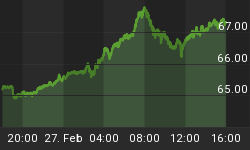As explained in last week's article, my Hybrid Lindsay model is pointing to a high in the Dow today, February 1st. Whether it is today, tomorrow, last Friday, or some other day very close to today, I have every reason to believe equities will begin a decline now that will likely continue for the remainder of the month.
And it is more than just the Lindsay model that has me convinced markets will decline into the first of March. Seasonally, during election years, equities decline for the first two months followed by a rally into April.
For those of you who follow the election cycle you already know that the average of all election years shows a low in June followed by a rally to new highs by the end of the year. But did you know that the average returns during election years in the eighth year of a Presidential term (like this year) show an extraordinarily different outcome? Carve out just these years and we see a market that, from the high in April, falls for the remainder of the year. Quite a surprise ifyou were expecting new highs by the end of the year.
Take a one month "sneak-peek" (trial subscription) at Seattle Technical Advisors.com















